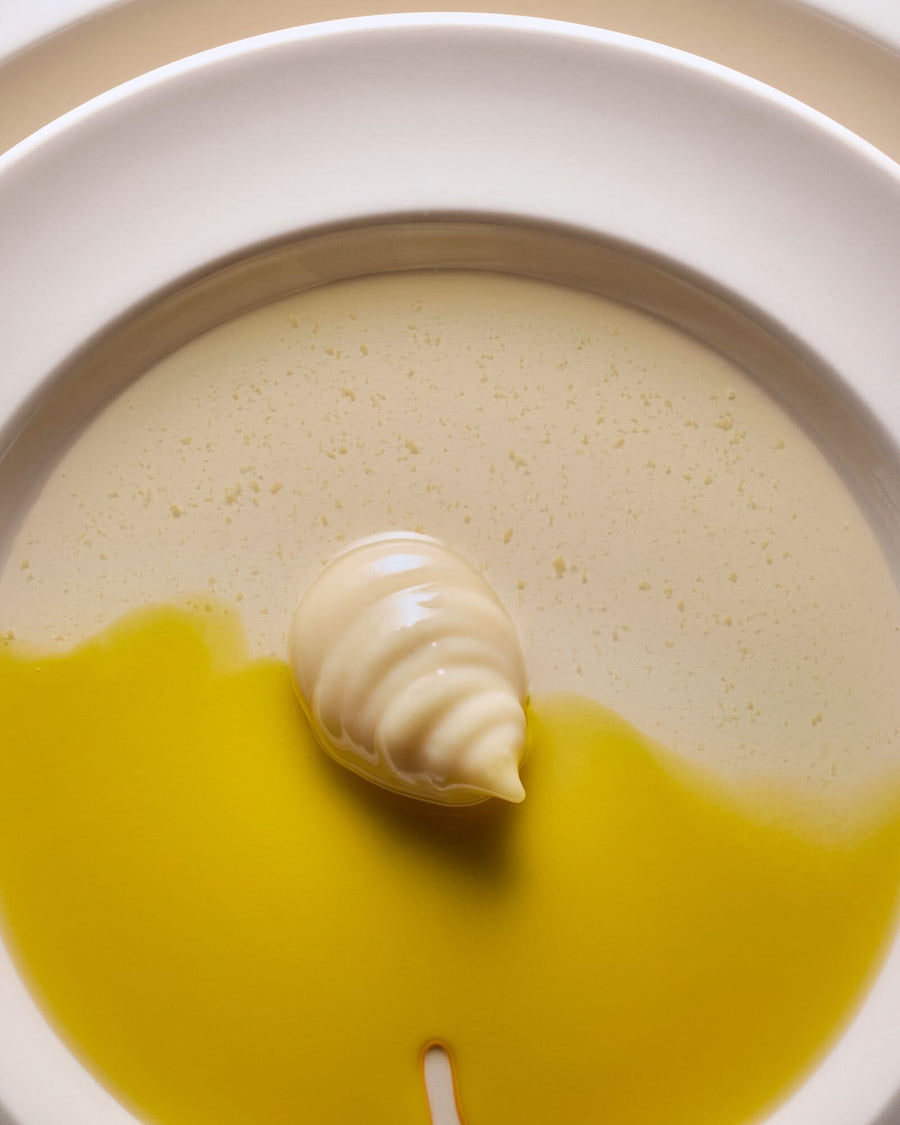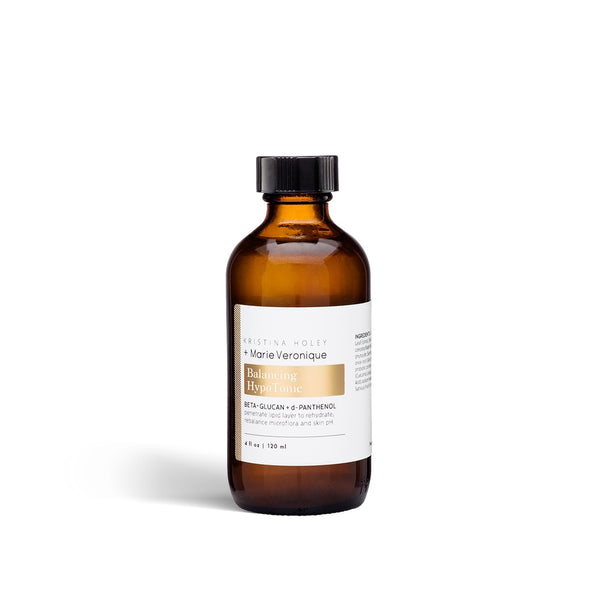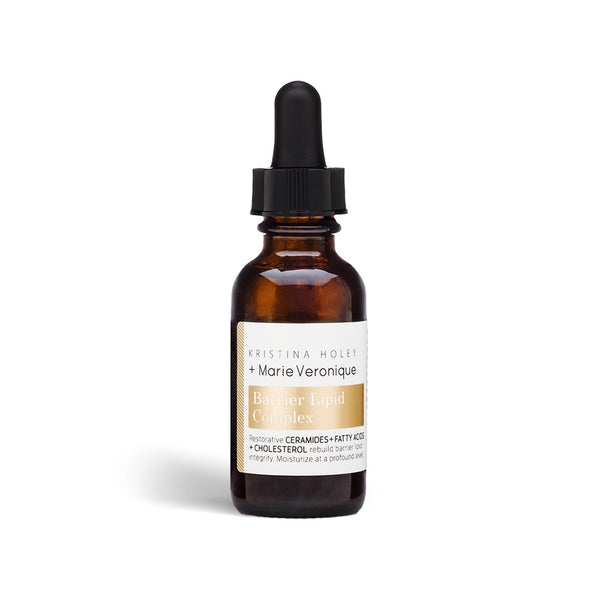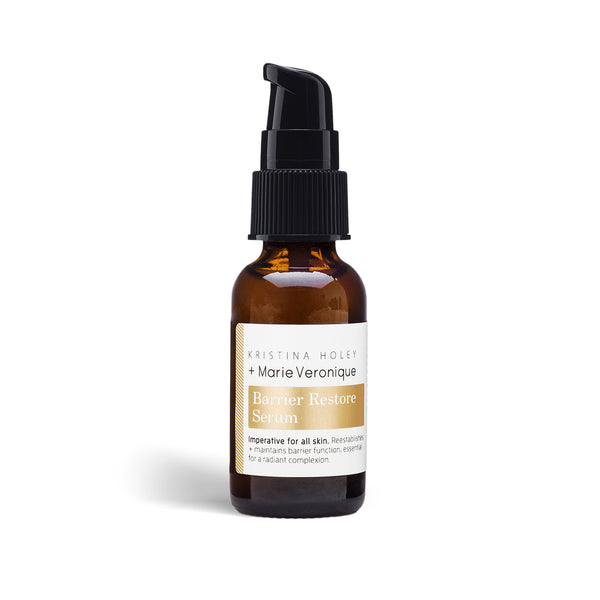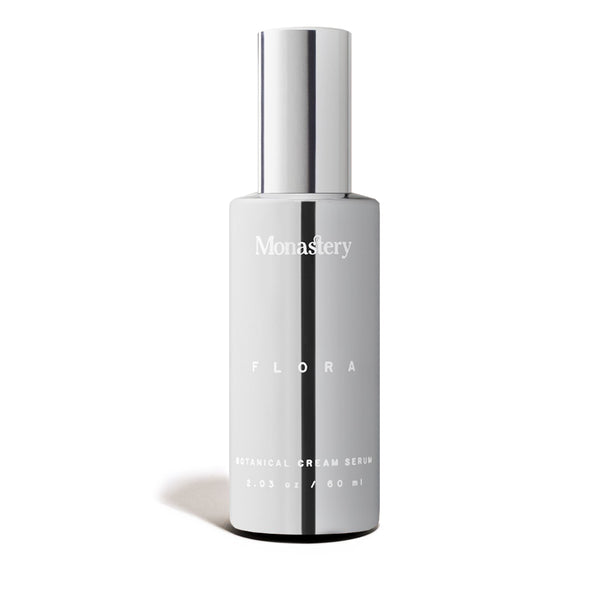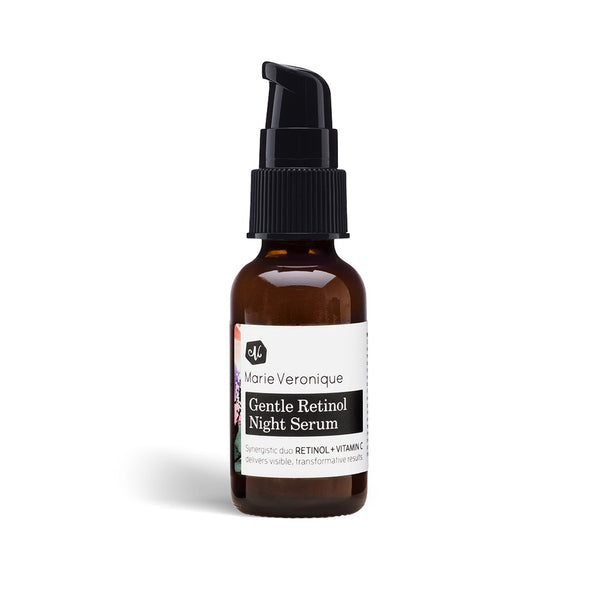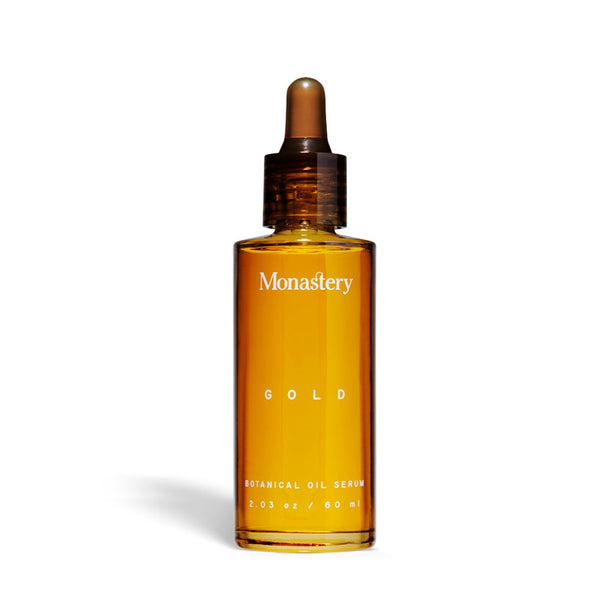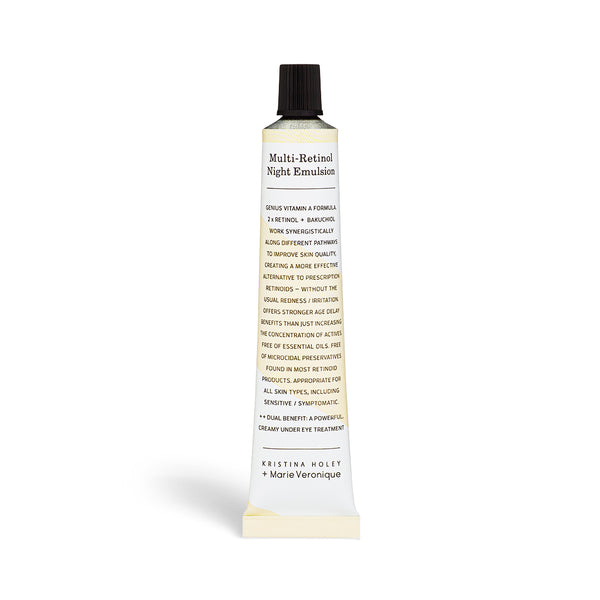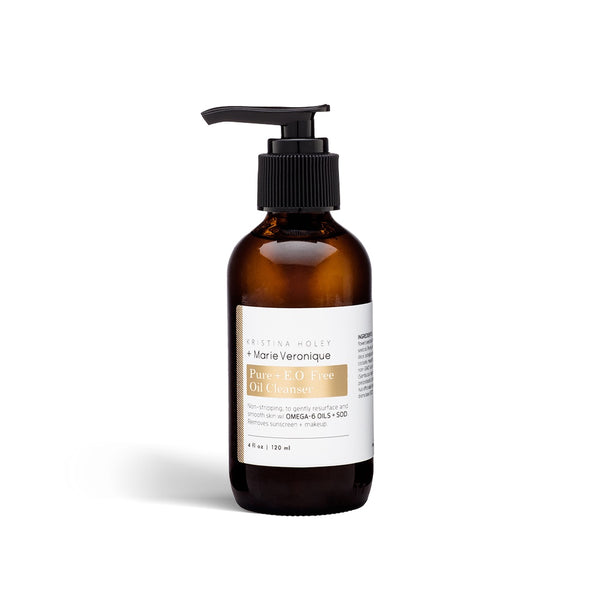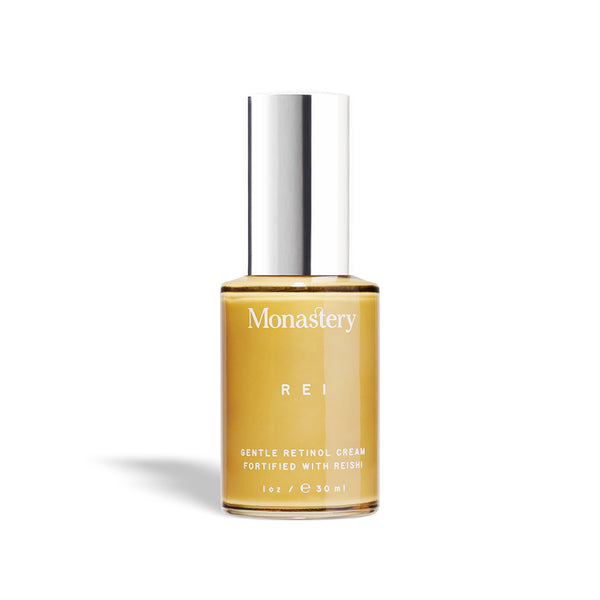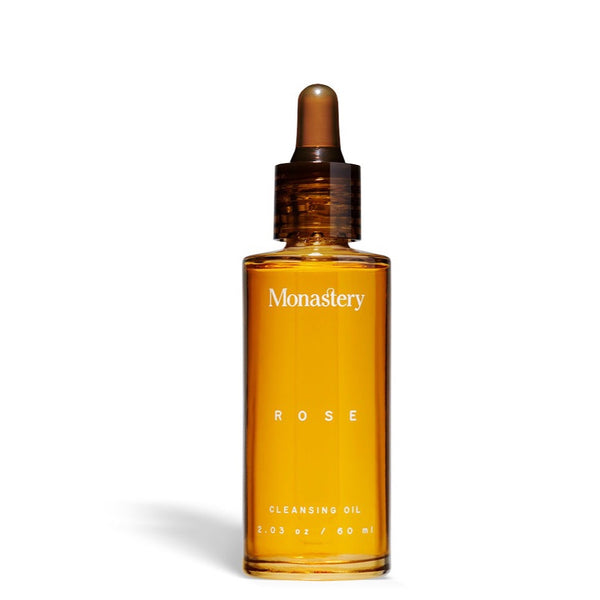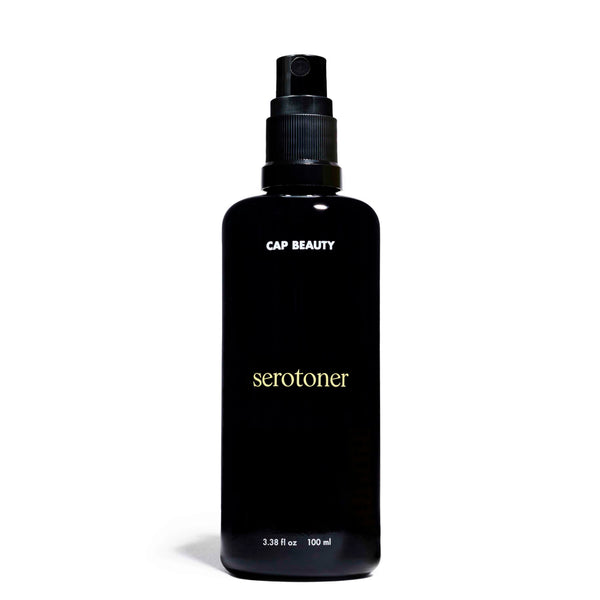What is your approach with clients that come in to see you with acne? Where do you start and how do you get to the root cause?
I have an inside-out approach, it’s nuanced and integrative. If someone is coming to me to heal acne, their journey is much different than my clients looking to simply age gracefully. They have been to countless doctors, they have spent thousands of dollars, they’ve been gaslit and dismissed, they are usually exhausted. I try to recognize all these components and start by deeply listening. We do a full consultation that’s built into their first facial, which is my Cult Facial™. We go over EVERYTHING from medical history to mental health to normal bowel movements. I also offer a non-diagnostic stool test that analyzes the gut microbiome for keystone species, diversity, dysbiosis, and much more!
How would you recommend those who can't see you in person begin their acne healing journey?
If you can’t come to me, I’d recommend following a few licensed estheticians who specialize in acne. Watch their journey, look for before and afters, and make sure you align. A red flag might be, “results after just one peel.” Sure, but will those results last? Because they aren’t identifying the root cause.
Have humans always experienced acne? What modern lifestyle factors do you think contribute to this condition most?
Acne is possible when we have both a genetic predisposition and the right environmental exposures. It is also an inflammatory disease, and one of western civilization. Authors of a 2020 study in the American Journal of Clinical Dermatology are finding that only when indigenous people move to westernized societies do they present with acne. Basically modernity has savaged our skin. High-glycemic foods, processed foods, conventional dairy, factory-farmed meat, refined grains, pollution, contaminated/treated water, overuse of antibiotics, lack of mineral-rich soil and water, and lack of prebiotic fiber in the diet not only create an inflammatory environment, but they also create a dysbiotic gut microbiome, a high toxin load and dysregulated hormones. The Gut X Skin Axis is vital to skin health. Consider that our gut microbiota actually communicates with our skin both indirectly and directly. This crucial relationship means that if we have a damaged intestinal barrier metabolites can enter our bloodstream which can disrupt the skin microbiome by accumulating there! There’s just so many players, but it all comes down to the microbiome!
Is there a basic, general skincare routine for someone with acne you feel confident would help almost anyone?
Absolutely. What I do and what works with my clients is: oil cleanse with Marie Veronique Pure + E.O. Free Oil Cleanser (make sure to properly remove), then the Marie Veronique Gentle Retinol Serum (at night), then moisturize with 2-4 drops of Monastery Gold Botanical Oil Serum. This is a very basic regimen.
Here's why: First, we effectively cleanse and debris the pores without disrupting the skins’ microbiome. Then, not only is retinol comedolytic, but it promotes keratinocyte differentiation (a process by which keratin cells maintain epidermal integrity through functioning normally; they protect against unwanted microbes). And lastly, retinol suppresses acne lesions from forming. The Gold Botanical Oil is a quick-absorbing, multivitamin for the skin. The nutrient-density and anti-inflammatory properties also help to calm skin tissue.
What is microneedling? What exactly does it do for our skin and why do you love it for those with acne?
Microneedling is a non-ablative procedure that utilizes tiny surgical steel needles at a 0.5 mm depth or above to gently pierce the skin. This action increases the skin's own production of natural growth factors and cytokines, and mitigates any excess inflammatory cascade that might otherwise occur with other ablative modalities. I love it for its immeasurable regenerative capacities!
After a microneedling treatment, we get an increase in nutrient uptake and bio-availability and we normalize melanocytes (hello hyperpigmentation), and down-regulate keratinocytes (perfect for acne patients). It also creates turgor in the vessel walls and connective tissue which supports blood flow and capillary function (great for those with rosacea), and even breaks down hardened scar tissue.
Microneedling optimizes cell signaling, instructing cells to heal. It also encourages something called neocollagenesis, which promotes new collagen deposition while also rebooting our skin's cellular function. All of this is enhanced with the use of topical stem cytokines derived from bone marrow mesenchymal stem cells (BM-MSCs).
An analogy I’ve recently been using is to think of mycelium on the forest floor. The mycelium at the root tips connect and send signals to other trees forming a network, to transfer nutrients and keep other trees healthy.
I really don’t think non-professionals understand that what separates us from them isn't just education, but namely experience. Anyone can google, or even go get licensed, but experience with thousands of clients is wisdom. You are better able to determine efficacy and outcome, control or stop a negative reaction and give results. Someone at home runs the risk of infection, scarring, or it simply not working.
Can you share your perspective around hormonal acne? Why do you not see it as a root cause?
Hormones can provoke acne, and they certainly do, but they are not the root cause. We all go through puberty, yet only some teenagers get acne. Women have their cycle and go through hormonal changes monthly, yet we don’t all experience acne. Acne is multifactorial, with a lot of cross-pollination. For example, the combination of PCOS and a genetic propensity will likely cause acne, and while these factors alone may impact the presence of acne for some, it’s just not the case for all. Not only is the gut microbiome compromised in almost all cases of acne, but additionally in patients with acne 94% have a presence of H Pylori, 92% candida, and 50% have Protozoa like Giardia.
It’s also important to be able to break down excess estrogen and excrete it through bowel movements, improve our estrogen to progesterone balance, and regulate testosterone levels by increasing the production of a protein called sex hormone binding globulin (SHBG), which binds to testosterone in the bloodstream, rendering it inactive, which is helpful in women to reduce acne. I have an integrative OBGYN I recommend clients to in the case of extreme hormone dysregulation.
What are some of your favorite lifestyle habits to help clients with acne?
1. Take an oral spore-based probiotic.
2. Increase fiber rich foods.
3. Zinc sunblock for its anti-inflammatory properties.
4. Daily breathwork and skin affirmations.
5. Lifting weights and cardiovascular health.
Email Jenn at ritualbodywellness@gmail.com to book a consultation.
